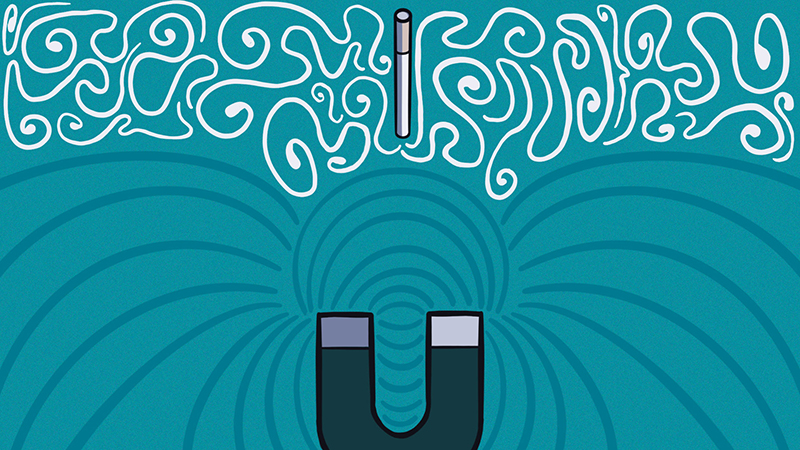Deep TMS for Smoking Cessation

Brooklyn Minds offers Deep TMS for smoking cessation in our convenient Midtown location. We are one of only ten locations in the U.S. with BrainsWay’s H4 helmet offering Deep TMS as a safe and effective aid for short-term smoking cessation in adults. Deep TMS is the only non-invasive medical device FDA-cleared for short-term smoking cessation.
How does Deep TMS for smoking cessation work?
Deep TMS is proven to reach wider and deeper brain regions than traditional TMS devices. Brooklyn Minds uses BrainsWay’s patented H4-coil held inside a cushioned helmet fitted onto the patient’s head which generates electromagnetic pulses that stimulate neurons in the brain associated with addiction, reducing tobacco cravings and increasing cognitive control.
Who is Deep TMS for?
Deep TMS for smoking cessation is for individuals ready to quit smoking. Smoking is one of the leading causes of preventable disease and death throughout the world. While the percentage of Americans who smoke cigarettes has declined over the past several decades, tobacco addiction continues to be a significant health concern, with more than 16 million living with a smoking-related disease, such as lung cancer and heart failure.
Addiction to nicotine, similar to addiction to drugs and alcohol, is characterized by intense craving, compulsive use, and an inability to stop despite negative consequences. Areas of the brain involved in decision-making and behavioral control are impacted, and smokers build a tolerance, requiring increasing levels of nicotine to achieve the same neurotransmitter release that triggers pleasure.
What are the efficacy rates of Deep TMS for smoking cessation?
A double-blind, multicenter, randomized, controlled pivotal study of 262 subjects demonstrated a significant improvement in the continuous quit rate, as well as a substantial reduction in cravings and the number of cigarettes smoked. Participants in the study were highly addicted to smoking, with a history of smoking an average of over 26 years and multiple failed attempts to quit.
The study also demonstrated that among participants that completed treatment, the continuous quit rate, referring to four consecutive weeks of abstinence from smoking, was 28.0% in the active Deep TMS treatment group compared to 11.7% in the sham treatment group.
In addition, the difference in the average number of cigarettes smoked per day per subject from baseline to the end of the study (4-month follow-up for quitters and 6 weeks follow-up for smokers) was statistically significantly lower in the active Deep TMS group compared to the sham group.
Your target quit date should be set within the first 2 weeks of treatment. Many patients stop smoking within the acute phase of treatment, with the remaining treatments helping maintain the effect.
Are there any side effects of Deep TMS for smoking cessation?
Deep TMS has been shown to be well-tolerated, causing no systemic side effects, and can easily be incorporated into your daily routine. The most common side effect reported was headache, primarily during the first treatment sessions (24% of those in the active treatment group and 18% in the sham group). No seizures were observed.
How long does Deep TMS take?
A typical treatment involves 18 sessions over 6 weeks. Each session lasts about 15 minutes.
- Week 1 – 5 sessions
- Week 2 – 5 sessions
- Week 3 – 5 sessions
- Week 4 – 1 session
- Week 5 – 1 session
- Week 6 – 1 session
Is Deep TMS for smoking cessation covered by insurance?
Deep TMS for smoking cessation is not yet covered by insurance, however, we use a contingency management approach to reward patients for successfully quitting which significantly reduces the cost of $3,600.

How do I get started?
For more information on treatment email smoking@brooklynminds.com.

